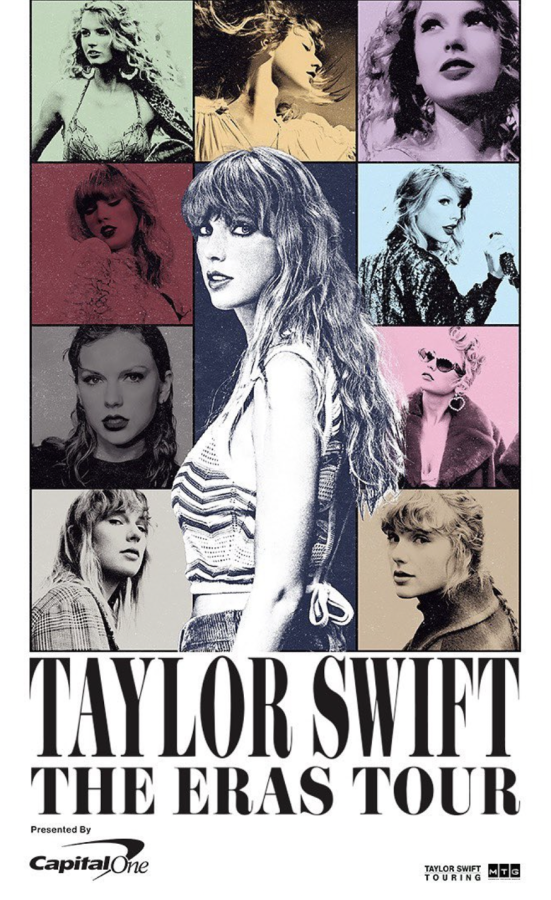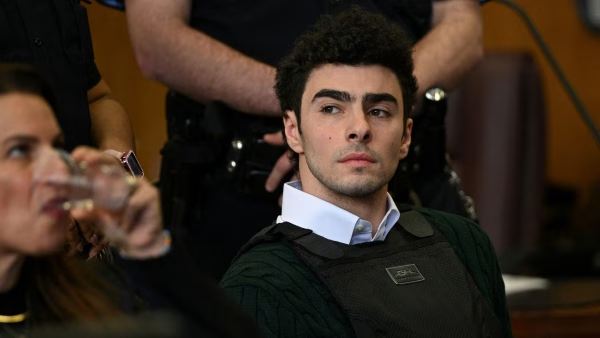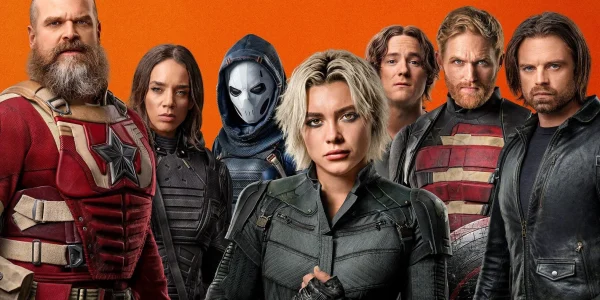Look what you made Swifties do, Ticketmaster
November 18, 2022
Following the release of her tenth studio album, “Midnights,” Taylor Swift finally revealed after much fan speculation that she would be going on tour again, declaring “The Eras Tour.” Joining Swift are a multitude of artists, ranging from Paramore to Phoebe Bridgers, opening for her based on the specific tour date. Swift announced 35 shows initially but later added 17 additional shows due to fan demand in the United States. The anticipation for the tour was extremely high among fans as Swift had not toured since her embarkation on the “Reputation Stadium Tour” and has subsequently released four new albums and two re-recordings within that time. This enthusiasm did not last long, however, as the journey of trying to get tickets for Swift’s tour is now notoriously known to be the worst ticket-buying experience of all time.
Unsurprisingly, there was a presale system put in place through Ticketmaster where fans could sign up to be designated as “verified fans” which would allow them to purchase tickets prior to the general on-sale. According to Ticketmaster, 3.5 million fans pre-registered for Swift’s verified fan program, the largest registration in Ticketmaster’s history. This system was the first in a series of many incidents in relation to the endeavor, as many fans who are long-term fans of Swift and had previously received presale for each tour were now waitlisted. Many complained that they had not received presale despite attending Swift’s previous tours, but their father or boyfriend had gotten it when they had created their Ticketmaster account only a week prior, questioning the validity of what Ticketmaster considers a verified fan.
Furthermore, there were “boosts” that fans could earn to increase their chances of moving up in the queue during the presale, granted via purchasing merchandise or singles. It was quickly visible that this system was also flawed when fans began receiving the boost without even having a presale. Perhaps the most unfortunate case of this circumstance is that holders of tickets for “Loverfest,” Swift’s tour for her seventh studio album “Lover” which was eventually canceled due to the pandemic, were not given a boost nor priority ticket access despite Ticketmaster guaranteeing this. Ticketmaster workers denied that they ever assured that Loverfest ticket holders would have priority but were met with fans of Swift showing proof of this recitation.
Though these prior hiccups had occurred, presale day on Nov. 15 was still expected to be filled with excitement coursing through the fandom for each person purchasing their long-awaited tickets, but this was horrendously ruined by Ticketmaster itself who were evidently not prepared to take on a presale of this grandeur. Within a couple of moments of the presale opening, the website completely crashed as 14 million people attempted to join the queue. Greg Maffei, chairman of Ticketmaster, later stated in an interview that “the site was supposed to be opened up for 1.5 million verified Taylor Swift fans. We had 14 million hit the site. We could have filled 900 stadiums.” Ticketmaster consequently delayed both the west coast and the CapitalOne presale to combat the online traffic and assure it would run smoother, but then paused the queue for the current presale shows for over two hours without any prior indication of when they would be unpaused.
Many spent several hours in the queue, with anywhere from five to 20 thousand people in front of them. Fans still held out hope despite the clear unpreparedness on the company’s end, but when finally getting to the page for purchasing tickets, many more glitches awaited customers. Error messages were prominent when clicking on seats, disallowing anyone from actually being able to purchase a ticket. Those who were lucky enough to even obtain the tickets in their carts still had issues checking out and were met with more pop-ups. This back-and-forth glitch in correspondence to clicking tickets and attempting to check out would extend for 20 minutes before Ticketmaster kicked the user out of the page for going above the allotted time of attempted purchasing and sent them to the back of the queue, exacerbating already frustrated emotions.
Prior to the day of the general on-sale, Ticketmaster released a tweet declaring that the general on-sale was now canceled due to “extraordinarily high demands on ticketing systems and insufficient remaining ticket inventory to meet that demand” essentially implying that those who were not able to successfully attain tickets through regular or CapitalOne presale, would no longer have the opportunity to purchase tickets. Consequently, fans of Swift then created the hashtag “#TicketmasterIsOverParty” which began trending nationally, consisting of many asserting their own experiences and emotions towards the situation. Fans also expressed their grievances over the current resale prices which are being sold for irrational amounts at the hands of Ticketmaster’s carelessness towards bots and scalpers, ranging anywhere from $700 for nosebleeds to over $100,000 for better seats in the stadium. Swift herself publicly addressed the situation in an Instagram story on Nov. 18, stating that “I’m not going to make excuses for anyone because we asked them [Ticketmaster], multiple times, if they could handle this kind of demand and we were assured they could. It’s truly amazing that 2.4 million people got tickets, but it really pisses me off that a lot of them feel like they went through several bear attacks to get them.”
Through the course of the ordeal, many politicians began to speak out about Ticketmaster, or more specifically its owner LiveNation, monopolizing the entertainment industry. Alexandria Ocasio-Cortez, the United States representative for New York’s 14th congressional district, took to Twitter to share her feelings on the matter. Ocasio-Cortez stated, “Daily reminder that Ticketmaster is a monopoly, its merger with LiveNation should never have been approved, and they need to be reigned in. Break them up.” Following this, the Department of Justice has now launched an investigation into the owner of Ticketmaster. However, the call for action has not stopped there. There is now an initiative deemed “SWIFT Initiative” or Swifties Working to Increase Fairness from Ticketmaster, created by Voters of Tomorrow who are working to “advocate for legislation expanding federal authority to oversee and prevent certain business mergers.” The coalition is also pushing for better funding for Federal Trade Commission enforcement of antitrust laws and requesting the Department of Justice to reverse the merger of Ticketmaster and Live Nation. Additionally, the Tennessee Attorney General has launched their own investigation into the matter in order to conclusively determine whether or not Ticketmaster delivered on its promise to customers, and could potentially grant a court order to “make the company do better.”.
This is not the first instance where Ticketmaster has had legal action taken against them, unbeknownst to most people. In 1994, they were sued by rock band Pearl Jam who claimed that “Ticketmaster, after scooping up its competitors, abused its marketplace dominance by collecting sky-high service fees and signing exclusive deals with major concert venues, leaving consumers and artists with no other alternative.” Pearl Jam lost the lawsuit but still shed a light on Ticketmaster’s monopolizing tactics.
Ticketmaster’s negligence ultimately made what was meant to be an exciting experience amongst fans transform into a stress-ridden nightmare, which may have permanently altered the course of ticket-buying forever depending on the results of the courses of action taken. At this time, neither Taylor Swift nor Ticketmaster has provided further information as to what will happen next for fans who have been unable to purchase tickets.













